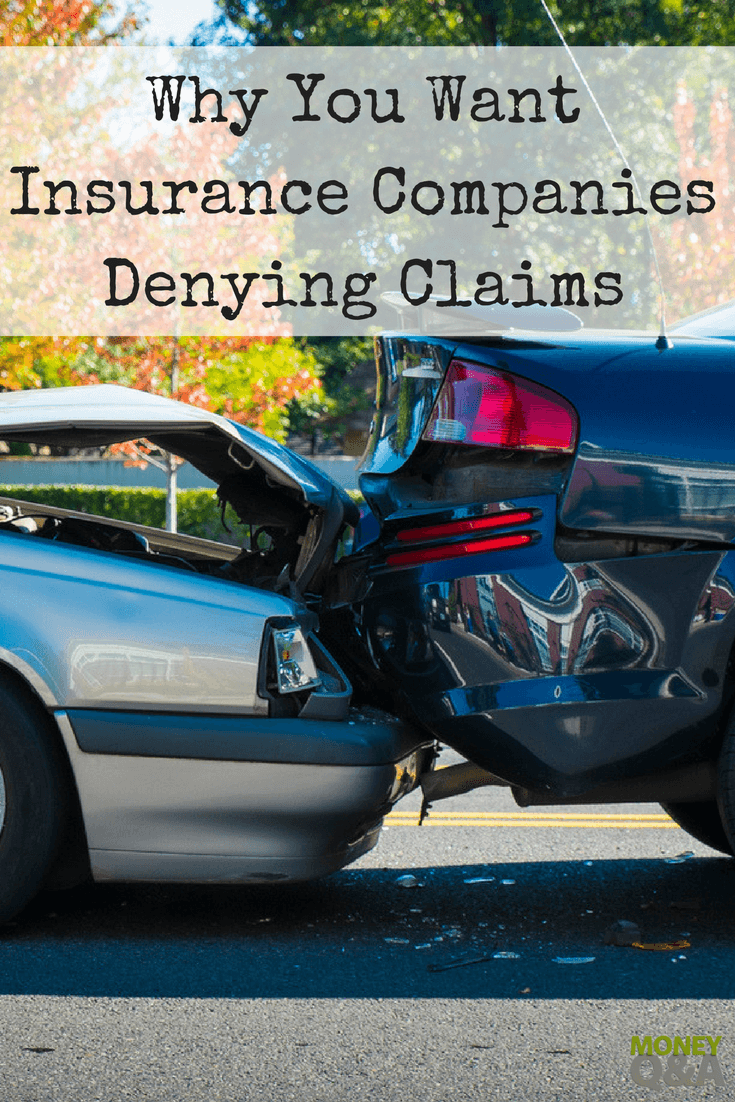
I saw a segment on the news recently that highlighted a family whose insurance company had canceled their renters’ insurance policy. The family in question filed two claims against their policy over the holidays after burglars broke into their home before Christmas and again just before New Year’s. As a result, their insurer dropped them.
Of course, the timing was horrible, and the local media covered the story exhaustively. But I’m glad the insurance company canceled their policy, and you should be happy, too. Here’s why:
What are the odds of a family having two robberies in such a short span of time? It’s very unlikely. In fact, such unusual circumstances are strong warnings of potential fraud. And while I don’t want anyone to needlessly suffer, if insurance companies don’t take action when faced with those sorts of events, it could translate into higher insurance costs for the rest of us.
It All Comes Down to Higher Rates for All of Us
Most people forget that most insurance coverage is typically a group policy. Insurance companies, whether they’re selling property insurance or life insurance, depending on large groups of people acting as participating partners. It’s the law of large numbers at its finest.
Insurers have armies of actuaries whose sole job is to determine the likelihood of a payout on a given policy. Our policies and their profits depend on most people paying their insurance premiums and hardly ever needing to file a claim. That, combined with the actuaries’ ability to make accurate predictions, is what keeps premiums relatively low for the rest of us.
Having one customer file two claims practically back to back is highly unusual. If it stopped being unusual (say, if unscrupulous individuals realized you could do that without consequences), the ripple effects would spread through the system.
Insurance companies raise the cost of premiums when they have to make more payouts than they anticipated. Maybe that wouldn’t happen right away, but eventually, they always increase prices to cover their unexpected losses.
Don’t File Small Claims on Your Insurance

So what can you do to ensure that your insurance premiums don’t go up? First of all, you should be happy if your insurance company is denying frivolous claims or dropping its coverage of less-desirable customers. That ultimately keeps prices low for those of us who rarely or never have to file a claim.
Most insurance is a safety net against catastrophic bad luck. And that’s the only time you should use it. If you can self-insure yourself against having to make small claims, that’s the way to go. Save your insurance for when you really need it.
Most people reach for the phone and call their car insurance companies. But, you may be better off self-insuring in the case of a single-car accident with no injuries. The same may also be true for small renter’s insurance claims, which may be better to self-insure.
For your own single-car accidents, you should seriously consider getting an estimate from an auto body shop to have the damage repaired out of pocket instead of filing an insurance claim. Many can give you a free written estimate on your first visit.
You also have to consider your deductible. (On our cars, it’s $500.) Even if the cost to repair the damage is a little more than that, it could be worth it to simply pay out-of-pocket. Otherwise, if you file a claim and get paid, you could see your insurance premiums go up or even have the policy canceled altogether.
But if another person is involved in your car accident, you should call your car insurance company. If you don’t make a police report and file a claim with your insurance company, the other party could still sue you later for injuries. And your insurance company may refuse to cover a bodily injury claim against you if you didn’t notify them of the accident in a timely manner.
Get a FREE Quote Today from 21st Century Insurance.
Have an Emergency Fund to Protect Yourself and Keep Your Premiums Low
An emergency fund can help protect you from having to file small claims against your insurance policy. These funds are no longer simply to protect you against a job loss, a broken-down car, or an unforeseen expense. You should also think of your emergency fund as a cushion that can provide you with a stopgap for small losses from accidents or theft.
While no one wants to pay for damages or replace stolen items out-of-pocket, filing a claim might not be the best route either. Your insurance should protect you from the major losses, not the little ones.
Has your insurance company ever rejected a claim you filed? Has one ever canceled your coverage? Do you dip into your emergency fund rather than submitting small claims? How many claims have you filed in the last year?
Note: This article originally appeared on AOL Daily Finance and is reprinted with permission.


Bad people have been using insurance fraud for centuries. It’s too bad the insurance company didn’t come up with proof. I agree that insurance, especially liability, is necessary but should be used for catastrophes. Quite a while ago, I had a fender bender in a parking lot. Of course, the person who hit me didn’t have insurance. I didn’t want to make an uninsured motorist claim to my insurance company, which would have given the other driver a ton of life-altering grief. And since it was really just my fender that was bent, I was fine with him paying me $500 out of his bank that very same day.
Bryce,
The only issue I have with your course of action though is that it seems to me that letting uninsured motorists off the hook with less grief only reinforces bad behavior (driving with no insurance). It’s not like you got them off the road or they got a big ticket from the police for driving without insurance. They probably continued to do the same thing and are still on the road to run into the rest of us (God forbid) on down the line.
Hank, I have a hard time believing that this family was truly robbed twice in such a short period of time. The statistics just make it questionable. If it’s true, I feel bad for them because not only were they robbed, they are the unluckiest people in the world, or at least on their block! I’m with you, it’s important for insurance companies to cancel plans for those who are a high liability for fraud. Makes perfect sense to me!